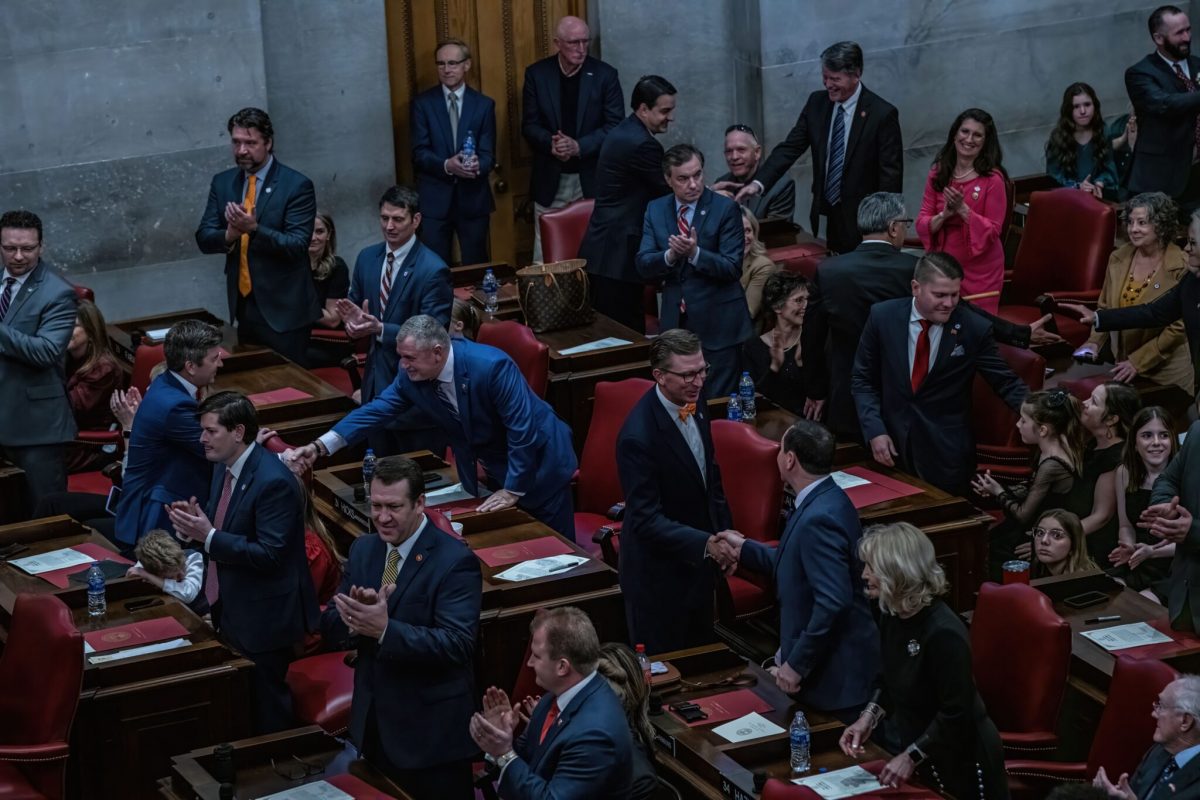The fate of two of Tennessee’s state election maps could get a ruling in the coming weeks, while a potential lawsuit could challenge Congressional drawings after a favorable U.S. Supreme Court ruling.
Lawyers in a suit challenging the the legality of 2022 state House and Senate redistricting maps submitted their post-trial briefs to the Davidson County Chancery at the end of May, signifying the conclusion of the trial.
The trial ended days before the U.S. Supreme Court ruled an Alabama Congressional map violated the Voting Rights Act on the grounds of illegal gerrymandering meant to lower the chances of the state electing a second Black U.S. Representative.
But while the ruling likely opens the door for Democrats in states like Louisiana and South Carolina to challenge those maps on similar grounds, a similar case will be tougher in Tennessee — even as the ruling has increased the likelihood of a lawsuit.
The argument from Republicans is these maps are not racially charged, but political. As long as there’s no evidence that the people in the room who are making these decisions were talking about race, then you have very little to go on.
– Lisa Quigley, former chief of staff for retired U.S. Rep. Jim Cooper
Breaking decades of precedent, Republicans divided Nashville into three Congressional districts as part of the 2021 redistricting process. Previously, Metro Nashville-Davidson County made up most of the 5th Congressional District, with smaller counties such as Cheatham or part of Rutherford filling it out.
The change gave Republicans the necessary rural votes to flip the historically Democratic 5th District and played a significant role in helping the GOP secure a four-seat majority in the U.S. House.
Progressive organizations in Tennessee have started discussing whether the Alabama decision would allow them to reverse the Nashville gerrymander. Tennessee’s Black population makes up about 17 percent of the state, while one of the state’s nine Congressional districts (or roughly 11 percent) is considered a majority-minority district.
These groups believe a Nashville kept intact creates a Democratic seat, but it wouldn’t necessarily create a majority-minority district leaving it in a gray area under federal voting laws.
Lisa Quigley, former chief of staff for retired Nashville Democratic U.S. Rep. Jim Cooper, said the long-term success of the recently redrawn congressional districts could come down to an argument of politics versus race.
“The argument from Republicans is these maps are not racially charged, but political,” Quigley said. “As long as there’s no evidence that the people in the room who are making these decisions were talking about race, then you have very little to go on.”
The U.S. Supreme Court has previously ruled gerrymandering for political purposes is allowed.
State House and Senate map challenges
The current state House and Senate map legal challenges don’t accuse Tennessee Republicans of racial bias, instead arguing lawmakers violated a set of federal and state map drawing requirements.
Gary Wygant of Gibson County challenged the state House map on the grounds it violated state and federal redistricting laws by dividing up more counties than necessary, while Francie Hunt of Nashville challenged the state Senate map based on a provision in the state constitution requiring districts to be numbered in sequential order inside a county.
As an example, Republicans drew Sen. Mark Pody’s, R-Lebanon, Senate District 17 seat into Davidson County, whose other three Senators — Democrats Heidi Campbell, Charlane Oliver and Jeff Yarbro represent districts 19, 20 and 21.
Democrats have argued the state House map could have divided fewer counties, which would potentially boost Democratic chances of picking up more legislative seats. After redistricting, Republicans increased their majority in the state House from 71 to 75 seats.
Lawyers defending the maps argued the map split no more than the maximum allowed under the law.
A new map in the Senate could impact Republicans Kerry Roberts, Shane Reeves, or Bill Powers, potentially making one of their districts more competitive.
Last year, the Tennessee Supreme Court overruled a lower court decision temporarily blocking the map because it said the concerns were too minor to risk impacting the 2022 midterm elections.
A court ruling could force Republicans to redraw the maps before next year’s elections, which they could do during the August 21 special session called by Gov. Bill Lee.
The Wygant-Hunt briefs: GARY WYGANT – Plaintiff’s Post Trial Brief
gary wygant – defendant’s post trial brief
Tennessee Lookout is part of States Newsroom, a network of news bureaus supported by grants and a coalition of donors as a 501c(3) public charity. Tennessee Lookout maintains editorial independence. Contact Editor Holly McCall for questions: info@tennesseelookout.com. Follow Tennessee Lookout on Facebook and Twitter.







